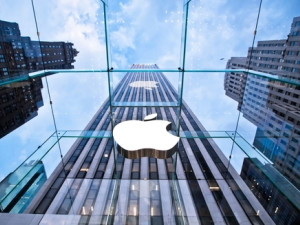
Apple and HTC have announced a surprise global settlement, which sees the dismissal of all current lawsuits and a 10-year licensing agreement.
In a joint statement from the companies, Apple CEO Tim Cook said: "We are glad to have reached a settlement with HTC. We will continue to stay laser-focused on product innovation."
HTC CEO Peter Chou also said he was glad the dispute had been resolved so "HTC can focus on innovation instead of litigation". The terms of the settlement have not been made public.
HTC was among the first manufacturers using the Android operating system to be sued by Apple back in 2010, marking the beginning of the so-called 'smartphone patent wars'.
Late last year, the US International Trade Commission ruled that HTC had infringed on four Apple patents, and a sales ban was imposed on some of its phones. According to Reuters, while HTC said it had devised a technical workaround to Apple's patents, the company announced in May that shipments of its phones were being held up by US customs officials and Apple had argued that the workaround was not sufficient.
In August, Apple won a $1.05 billion verdict against Samsung. Apple is also still involved in ongoing litigation with Google's Motorola Mobility unit.
It has been noted that the 10-year licensing agreement reached by Apple and HTC shows Apple may not be quite as unwavering in its stance as expected. Former Apple CEO Steve Jobs was infamously quoted as saying: "I'm going to destroy Android, because it's a stolen product. I'm willing to go thermonuclear war on this. I will spend my last dying breath if I need to, and I will spend every penny of Apple's $40 billion in the bank, to right this wrong."
While the terms of the licensing agreement are not known, it has been indicated by HTC that it will not have an "adverse material impact" on its financials and the agreement would allow for the company to continue shipping its existing range of both Android and Windows Phone handsets.
Makes sense
It has also been noted, however, that Apple has bigger fish to fry with its key strategic battles being those with Samsung and especially Google (through its case against Motorola Mobility). HTC has lost market share in the smartphone space to both Apple and Samsung, and the company has forecast a 14.5% fall in revenue in the fourth quarter.
Other speculation around the reasoning behind the settlement includes the fact that the agreement could help give HTC a boost against its other Android-based competitors, such as Samsung, in the US market. The agreement will allow HTC to use some of Apple's patented touch elements, which Samsung is not allowed to use in the US.
Intellectual property analyst Florian Mueller says in a blog post: "It makes a whole lot of sense that Apple would settle with HTC, and that HTC would accept the terms Apple has imposed (which were not disclosed, but are likely somewhat onerous), prior to other Apple-Android settlements. Both companies simply have other priorities to focus on.
"For Apple, the competitive challenge it faces from Samsung and from Google's plan to use Motorola Mobility's patents to reach a point of mutually assured destruction are far bigger issues. If Apple wanted to be embroiled in litigation with a third Android device maker, HTC would no longer be the choice at this stage - Amazon, for example, would be a higher priority.
"While HTC didn't have to fear much from Apple's litigation in the nearest term, it probably knew that it couldn't win this fight in the long run, and it now needs to focus on its business. It recently lost market share and reported disappointing financial results," says Mueller.
Share